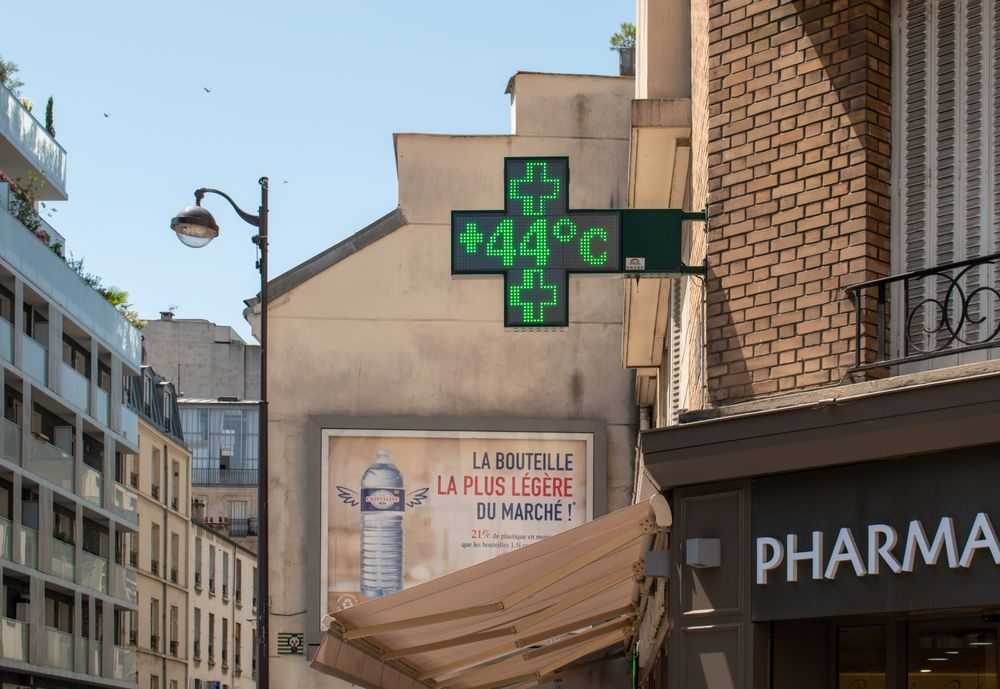Accueil>Urban Heat Island and critical environmental thresholds

25.09.2024
Urban Heat Island and critical environmental thresholds
À propos de cet événement
Du 25 septembre 2024 à 00:00 au 27 juillet 2024 à 00:00
LIEPP's environmental policies research group and NUS Environmental Research Institute (NERI) (NUS) are pleased to convene, with the support of the 2024 PHC Merlion programme and in partnership with the Institute for Environment and Sustainability (NUS) and Centre for Earth politics, the workshop:
Urban Heat Island and critical environmental thresholds: comparing the Singapore and the Ile-de-France Region
25th-27th of September.
Abstract:
Urban warming is expected to increase in the context of climate change, with dramatic effects on urban social and natural ecosystems. Bringing together a diverse range of disciplines, with scientist from both the academic and the policy fields, in Singapore and the Paris Ile-de-France Region, this Merlion workshop aims at examining how the Urban Heat Island phenomenon has been approached by science and policymakers, in the process of attuning the experimental findings to the imperatives brought by climate change and city life.
It does so by comparing two large metropolitan areas, Singapore and Paris Ile de France region, through the following sets of questions:
- Are ecosystemic imperatives and city development objectives compatible overall today?
- Supporting business-as-usual approaches or initial environmental responses from the 2000s has become increasingly challenging in the face of enhanced scientific knowledge and tangible critical thresholds of climate change. How can local government and city environments navigate the formidable challenge of rising temperatures and today’s better-known consequences? What specific measures are being considered and implemented in Singapore and in the Paris Region?
- The Urban Heat Island effect has been studied across different disciplines, yet: What do we know and what are the remaining blind spots? How can these be addressed through interdisciplinary research? What efforts are needed to bridge the gap between scientific knowledge, policy processes and governance?
Combining social and experimental sciences, distinct methodological approaches, and ultimately different vantage points, the workshop brings about a non-traditional enquiry line that have already shown potential in previous collaborations under the Paris-NUS programme. The current research and takeaways from practitioners that have already taken place in the two cities, both separately and in cooperation, provides an ideal departing base. The workshop will also include dedicated time to engage with policy makers, experts, and the student community. Some sessions will be organized in a hybrid mode as to congregate a substantive participation from colleagues and students in Singapore and other distant locations.
Workshop co-hosts: Charlotte Halpern (Sciences Po, CEE and LIEPP) and Lup Way Chew (NERI and The Built Environment, NUS)
Organising committee: Alvaro Artigas (research associate at Sciences Po, CEE), Nathalie Blanc (CNRS, LADYSS & Centre des politiques de la terre), Alexandre Gelabert (Aix Marseille Université, CEREGE), Martin Hendel (ESIEE Paris, LIED, LIEPP), Andreana Khristova (LIEPP, Sciences Po), Lai Yoke Lee (NUS, NERI), Anne-Sophie Milon (Centre des politiques de la terre, Université Paris Cité), Sanjay Swarup (NERI and Department of Biological Sciences, NUS).
Hybrid Public events:
Hybrid public event 1: UHI: knowledge, thresholds, action.
Thursday, September 26, 8.30-10.15 am (CEST) / 14.30-16.15 pm (SGT):
Chair : Nathalie Blanc (CNRS, LADYSS, CPT, Université Paris Cité)
- Martin Hendel (ESIEE Paris, LIED, LIEPP) – Adapting to climate change in cities : from emergency cooling techniques to transformative action
- Chang Jiat-Hwee (Department of Architecture, NUS) - Thermal Governance in Urban Asia
- Luce Ponsar (Ingénieure territoriale, Former Director of the Climate Plan, Métropole du Grand Lyon, 2013-2023), From the phenomenon of Urban heat islands to the birth of a policy of adaptation to climate change.
9.45-10.15 am CEST / 15.45-16.15 pm SGT Panel discussion and Q&A from the audience
Hybrid public event 2: Mitigating the socio-spatial impact of UHI
Friday, September 27, 8.30-10.15 am (CEST) / 14.30-16.15 pm (SGT):
Chair : Alvaro Artigas (associate Sciences Po, CEE)
- Nathalie Blanc (CNRS, LADYSS, CPT, Université Paris Cité) – Terrestrial habitability in the context of climate change
- Yu Liya (NERI and Department of Civil and Environmental Engineering, NUS) (online) - Air quality of tropical urban environment: Outlook and challenge
9.45-10.15 am CEST / 15.45-16.15 pm SGT Panel discussion and Q&A from the audience
Contact: environnement.liepp@sciencespo.fr
